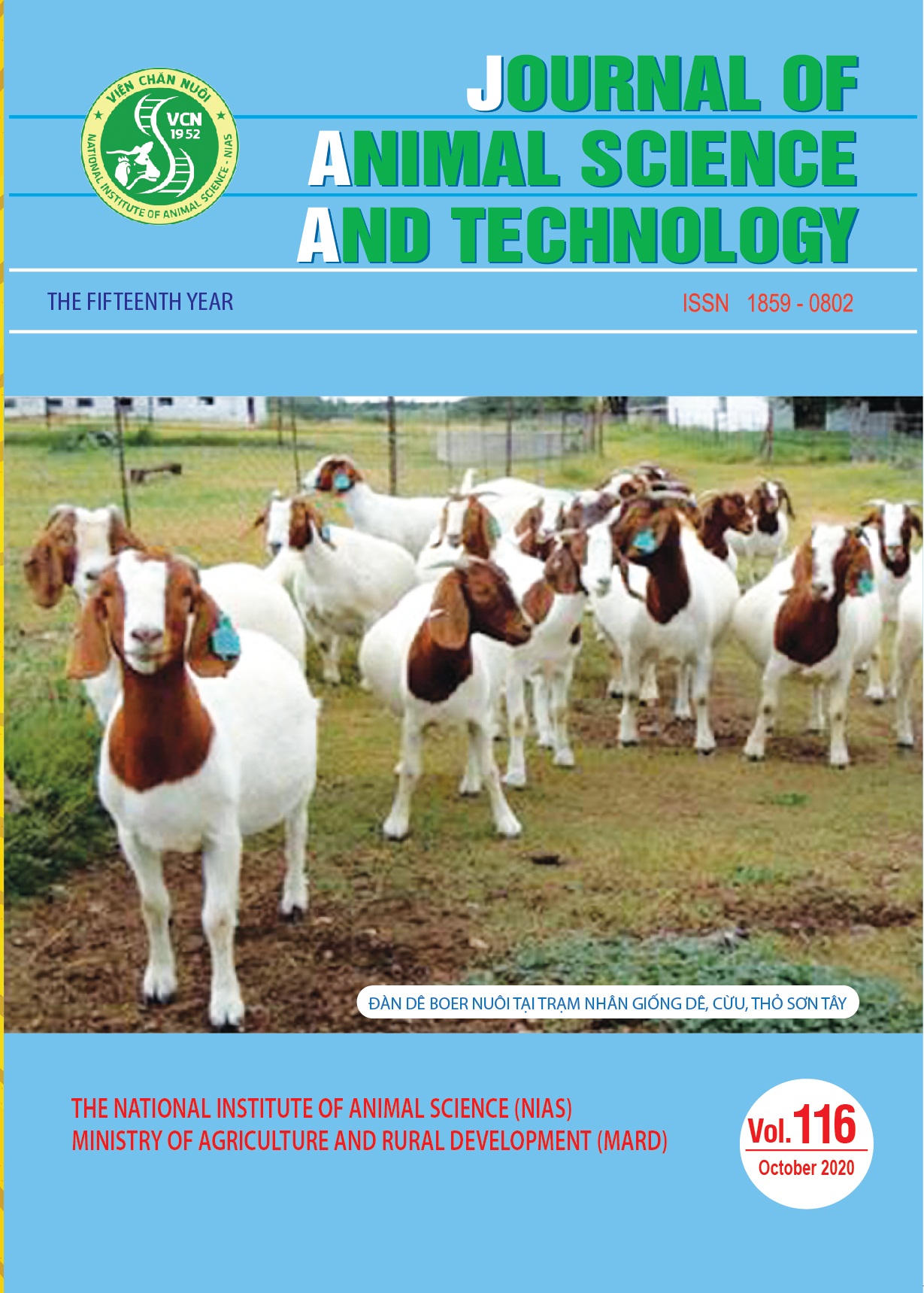Response of reproductive performance of rabbit does to antioxidant vitamin C supplementation in diets
An experiment was carried out to evaluate the effects of different supplement levels of ascorbic acid in diets on the reproductive performance of crossbred (New Zealand White breed x local breed) rabbits in three litters. The experiment was a completely randomized design with five treatments and four replications. One female rabbit at 4 - 4.5 months of age with average live weight at 2,500g was an experimental unit. The five treatments were different supplement levels of ascorbic acid (mg/kg DM diet) at 0, 125, 250, 375 and 500 mg, corresponding to C0, C125, C250, C375 and C500 treatments, respectively. The results showed that feeds and nutrients intake of rabbits in three litters were significantly increase (P<0.05) by increasing the supplement levels of ascorbic acid in diets. In the first litter, the litter size at birth, litter weight at birth, litter size at weaning and milk yield were significantly improved (P<0.05) by increasing supplement levels of ascorbic acid in diets with the highest values for C500 treatment with 7.00 kids and 361g, 6.50 kids and 72.3g/day, respectively. For the second and third litters, the milk yield were significantly improved (P<0.05) by gradually using ascorbic acid levels in diets but they gave a negative result for C375 and C500 treatments. It was concluded that using ascorbic acid at 125mg/kg DM diet could improve reproductive performance of does.

